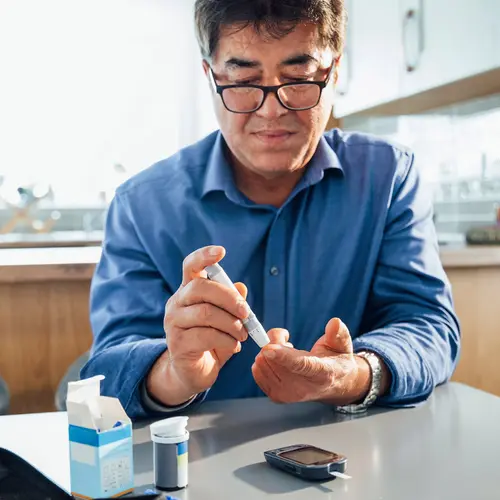If you have atrial fibrillation, also known as AFib, you may have heard that you should skip your morning cup of coffee. But research suggests that caffeine doesn’t cause abnormal heart rhythms or AFib.
Is There a Link Between Coffee and AFib?
Many studies have been done, and it does not seem that there’s a link between drinking coffee and getting AFib.
One large study of data on hundreds of thousands of people found that drinking coffee was not associated with an increased risk of AFib.
Another large study of men found evidence that drinking coffee could actually reduce your risk of AFib. It found that those who said they drank one to three cups of coffee a day had a lower risk of AFib. And another done in 2021 showed that each cup of coffee a person drank was linked to a 3% lower risk of developing an abnormal heart rhythm (also called arrhythmia).
Does the Amount of Caffeine You Drink Affect AFib?
There are no proven guidelines of the safest amount of caffeine for people with AFib. But according to a review of research on the topic published by the Journal of the American College of Cardiology, regularly having up to 300 milligrams of caffeine a day should be safe and may even protect against heart arrhythmias.
Studies have found that regular caffeine intake isn’t associated with AFib. One study examined healthy women’s intake of caffeine from coffee, tea, soda, and chocolate. Caffeine wasn’t associated with an increased risk of AFib. The study reported that small to moderate amounts of caffeine could even be helpful.
Other research has shown AFib risk could go down as caffeine consumption goes up. One study found that the risk of AFib decreased with every 300 milligrams of caffeine, or about three cups of coffee, people got per day.
How Do Coffee and Caffeine Affect Your Heart?
It’s unclear exactly what role caffeine plays in heart health. Coffee could lower the risk of AFib because of its other ingredients besides caffeine.
Coffee also promotes the release of hormones like epinephrine and norepinephrine that affect how the heart works.
Whether you have caffeine every day or rarely may make a difference. When and how you drink coffee — like with meals, black, or with milk and sugar – may change its effect too. Experts say more studies should be done to find out how caffeine impacts first-time AFib and recurring AFib for people with and without arrhythmias.
What Is Known About Other Caffeinated Drinks and AFib?
In most studies, coffee is the main source of caffeine. Coffee contains not only caffeine, but fats, carbohydrates, minerals, vitamins, and antioxidants – so it’s a very different drink than soda or energy drinks.
A 2016 study found that drinking green tea could protect against AFib, but only in low doses. Green tea decreased both paroxysmal AFib (which ends on its own within 7 days) and persistent AFib (which lasts more than a week). But the more tea people drank, the less protection they had.
Energy drinks often contain very high levels of caffeine, as well as herbs and other ingredients that act as stimulants. While there’s not much research on these drinks yet, there have been cases of AFib in young people after drinking energy drinks with and without alcohol.
In Short, Can I Drink Coffee If I Have AFib?
Research on this topic is not consistent. But the evidence seems to suggest that moderate amounts of coffee are safe for people with AFib. Still, coffee and caffeine can affect people differently.
Other factors likely determine how coffee impacts your health. One study of people with AFib found that major life stress may make you drink more coffee, leading to a higher risk of AFib. Drinking a lot of espresso increased the risk of persistent AFib. However, this study only included 400 people, while the studies previously mentioned were much larger.
Keep in mind, many studies look at healthy people who drink coffee regularly for a long time. Having a built-up tolerance to caffeine may play a part in how it affects your heart.
If you notice drinking caffeine or coffee triggers your AFib, you should stop and talk to your doctor. Some people say coffee sets off their AFib – their bodies may be more likely to be affected by caffeine for some reason.

